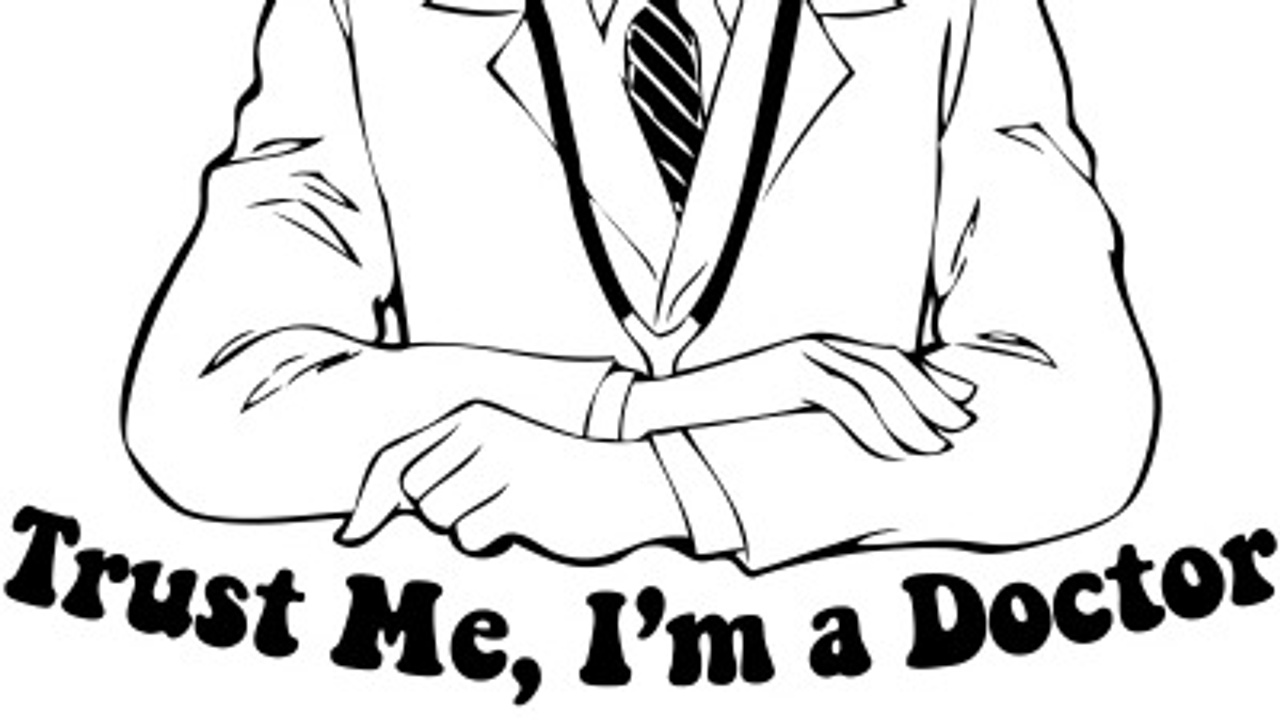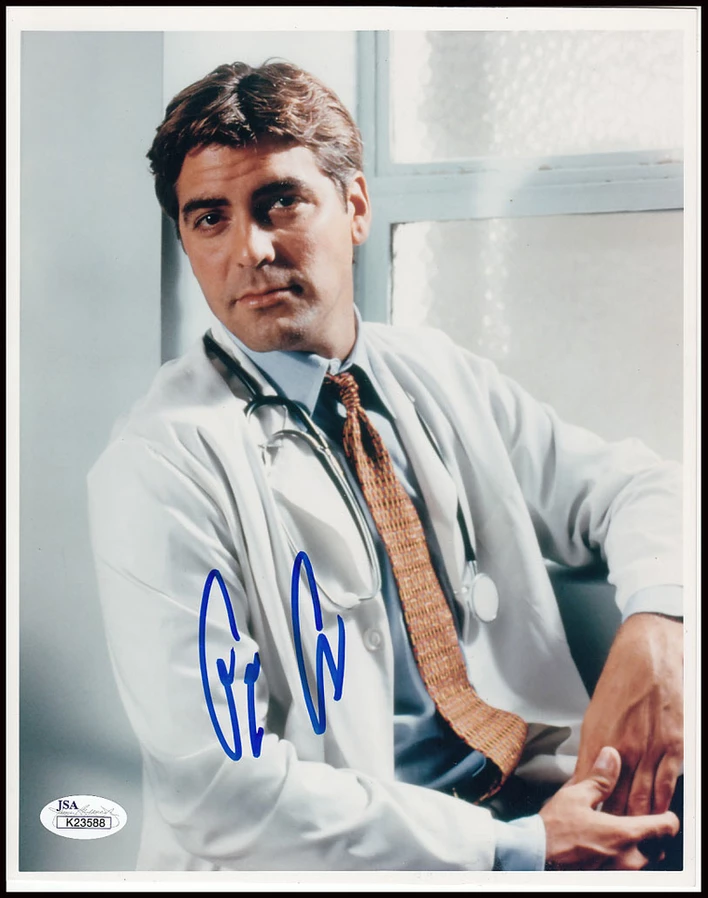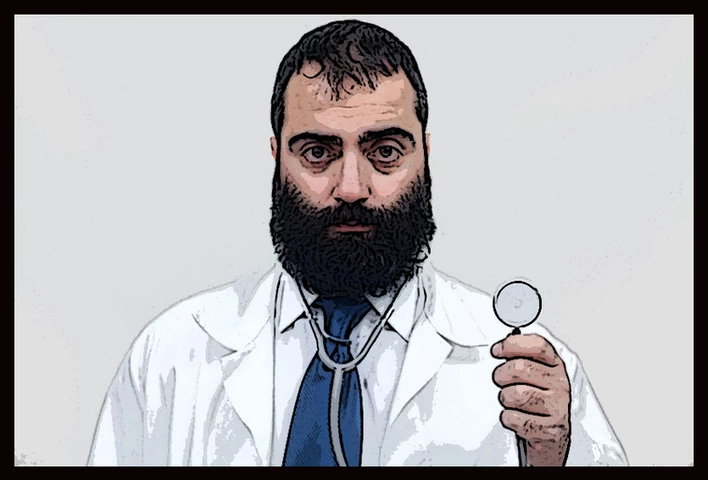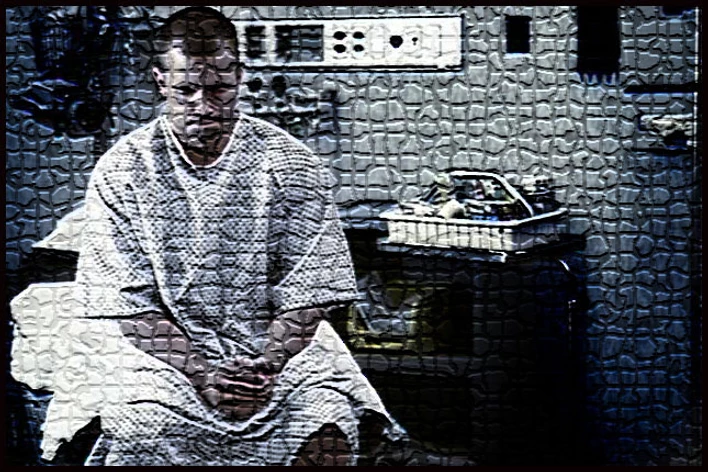Antidepressants, Benzos & Withdrawal: Lies That Doctors Tell
Sep 21, 2022
The man who initially prescribed me Paxil more than two decades ago likely understood little about the drug. He was an aging family doctor—my parents’ doctor, not even mine—and he simply seemed to know what a 1999 pharmaceutical representative had told him: that a guy like me, a nervous college student with a possible serotonin “imbalance,” was a good candidate for this wonderful, all-powerful SSRI that’s legal purview had just been extended beyond depression.
“This drug called Paxil has just been approved for generalized anxiety disorder,” the doctor told me after a quick self-survey questionnaire revealed a diagnosis for me. “You can take this, along with small doses of Xanax for the acute panic.”
My father and I nodded, or stared at the walls. I had been suffering through terrible panic attacks in one of my journalism classes that summer at UW-Madison (and anticipatory anxiety about the panic attacks), so I accepted those prescriptions from the doctor—sort of. I accepted the pieces of paper from him, but I didn’t, at first, accept the notion that a daily regimen of mind-and-emotion-altering pills ought to be the glue holding my college career together.
However, after some soul-searching, and despite some continued confusion and inner turmoil regarding what place those pills ought to have in my life, I filled the prescriptions at the pharmacy. And then I began to dutifully swallow the Paxil as my senior year began.
I got all A’s that year—graduating in the top 2.5 percent of my class (which numbered nearly 4,000 students)—and I got on with my life. I got married, I began a career, and I continued taking both the Paxil and Xanax for nearly fourteen years.
I never saw that family doctor again, though. I just kept refilling the prescriptions that he wrote.
-----
My next doctor (again a general practitioner) likewise seemed to understand little about the actual effects of antidepressant and benzodiazepine medications. And he readily admitted as much. I continued to come into his office as a stressed-out and anxious twenty-something trying to make sense of new family and work responsibilities, and he continued to advocate natural health: exercise, good nutrition, talk therapy, and the like. But by that time the medications had their hooks so deeply into the fiber of my being that I was under their spell.
I just couldn’t imagine “good health” without prescriptions by that point. I’d been indoctrinated.
So I ignored all of my doctor’s natural-health proselytizing and instead asked him—begged him—to up my dosage of Xanax. I broke down in his office to show him how much pain I was in, and the display was genuine. I was, by that time, likely suffering both tolerance and inter-dose benzodiazepine withdrawals, and the Paxil had perhaps stopped “working” for me already; so I was duly terrified and anxious.
And in addition to all of pill-related confusion I was experiencing (i.e., withdrawal), I really did have a lot of real-life stress on my plate as well. I didn’t like my job all that much at times, and my wife had some major health issues and surgeries we had to deal with. Withdrawal never happens in a vacuum.
“I guess the anxiety is just out of control,” I thought.
“I guess the anxiety is totally out of control,” the doctor agreed, and although he truly wanted to help me find a real solution for my anxiety, he reluctantly upped the dose of my Xanax to help ease my obvious pain.
Years later I received a letter from that doctor’s office, stating that he was leaving medicine to teach middle-school science. I guess the profession had no room for his type—the type that spent forty-five minutes with a patient trying to get to the heart of the problem; the type that wasn’t a fan of the prescription pad he used only as a last resort.

So that good doctor moved on from family medicine, but even before that I’d moved on from him. Even his compassion had limits, so when he refused to up my Xanax dosage any further, I found greener pastures in the form of another doctor at the same clinic—a stout, tan man who was quick with the prescription pad and who would readily help me keep any withdrawal at bay with more “medicine.”
That doctor understood that modern man didn’t have time for holistic solutions to his pain. He understood that modern medications were the ticket for modern maladies. However, he seemed to understand nothing about stopping those modern medications.
Years later, when I was suffering terrible nerve pains, depression, and mental anguish because I’d quit my Paxil and had begun tapering my Xanax, the tan doctor told me that any SSRI withdrawal “should have been over long ago.”
And shortly thereafter, when I tried to find a more knowledgeable, or at least open-minded, white coat to guide me through the second half of my Xanax taper, his colleague blamed my pains on beer.
Once again I found myself falling apart in a doctor’s office; but I was no longer asking for more medications. Instead, I was saying that they were the problem. I was withdrawing from their potent hooks, and I was looking for educated reassurance and guidance from the doctors at the clinic that had overseen my SSRI and benzo prescriptions for over a decade. But I received none.
No guidance, really no reassurance (because that comes with acknowledgement and knowledge), and certainly no education.
Why weren’t “educated” doctors educated about this? Why couldn’t they connect the glaring dots? How could they prescribe endless quantities of antidepressant and benzo medications but know (or admit) nothing about the process of stopping them?
Were they cruel? Were they lazy? Were they stupid? And if they were simply ignorant, understanding little to nothing about antidepressant withdrawal or benzodiazepine withdrawal, why didn’t they just say so rather than being dismissive or even accusatory?
Before long it became apparent to me that I’d be the one directing my own withdrawal and healing efforts, and so that’s what I did. I told the tan doctor, during one final visit, that I’d like him to run bloodwork to make sure I wasn’t dying. And when those results came back normal, I stopped visiting doctors.
I quit the Paxil in December of 2012, and took my last dose of Xanax in January of 2014. After quitting the drugs (and during my taper) I suffered through a painful drug withdrawal that seemed like it would never get better: but it did. I found small improvements, and later much greater ones; I got stronger and gained more insight into the withdrawal and healing process.
I began writing about my story, then making videos about it, and then coaching others through their own withdrawal and healing journeys. And I heard so many stories that were similar to mine. So many people out there were suffering because doctors weren’t able to guide them through the withdrawal process. Their situations were actually complicated or worsened by doctors rather than being simplified by them.
I now know more about prescription drug withdrawal than I ever thought I would. But do the doctors and psychiatrists out there prescribing the medications know, or admit, more than they did a decade or five years ago?
Unfortunately, the answer to that question is often No.
So many family doctors and psychiatrists out there are still clueless or lazy or dishonest regarding antidepressant and benzo efficacy and withdrawal, but they still prescribe the meds casually and often; and because of that ignorance or inattention or dishonesty, vulnerable people suffer.
When people nowadays go to the doctor’s or psychiatrist’s office suffering from either antidepressant withdrawal or benzodiazepine withdrawal, they might hear the following mistruths (maybe you’ll recognize some of these, because maybe you’ve heard them yourself).

SEVEN LIES (or unintentional statements of deception) MADE BY DOCTORS
1. “Everyone can easily stop taking antidepressant and benzodiazepine medications; there will be few or no problems. Tapers, especially lengthy ones, aren’t necessary. Easy on, easy off.”
This approach to getting off prescription medications is the polar opposite of safe. It is the polar opposite of effective. Instead of jumping carelessly off antidepressant and benzo medications, people (especially those who’ve been on them for any length of time) ought to employ a gradual taper that reduces the dosages incrementally over time. This can keep "the bottom from falling out" while a person is tapering. It can help to cut back on withdrawal symptoms in the short-term, keeping things more manageable, and it might help a person to experience fewer symptoms when the finish line of 0 mgs is reached.
2. “Okay, sometimes there are a few unpleasant “discontinuation symptoms,” but any withdrawal is a short affair and, if you have already quit the medications a while ago, then your problems are no longer related to anything called withdrawal.” (This might be declared by the doctor sometime on a return visit, sometime after mistruth number one was uttered on a previous visit and then proved false.)
I myself suffered through a protracted withdrawal that lasted years. Now, not everyone’s situation will be so drawn-out, but exact timelines aren’t the point here. The point is this: Whether someone’s healing is taking a week or six months or two years, a doctor should never be telling them, “Your withdrawal (if that exists) should have been over long ago.” That denies the problem (it is a misdiagnosis), and therefore begins pointing in all of the wrong directions for a solution.

3. “If you just began cutting back on the medications, then you couldn’t possibly be feeling anything called withdrawal already.”
Okay, there is so much wrong with this statement. First and foremost, it displays complete ignorance about or disregard for the concepts of tolerance and inter-dose withdrawals, painful realities that are often mistakenly labeled as anything from increased anxiety to fibromyalgia. And it also speaks to the “fast reduction, easy off” approach that causes many people problems in this day and age. The reality is that the body and mind get used to whatever we give them, and if they have been given antidepressants or benzos for any length of time, then they will notice reductions in the medications (especially large-percentage ones; hence the benefits of gradual, incremental tapers).
Here is an interesting story: A while back my mother was worried about my 90-something, long-widowed grandmother, worried that she was giving up on life and slipping away. She’d survived and thrived on her own for decades, but now she no longer wanted to leave the house. She was dizzy all of the time. She was unable to get excited about anything.
My mother truly thought the end was imminent for her mother, but as it turns out, it was withdrawal. My grandma’s Ativan prescription had recently been cut in half (and then that abrupt and mysterious “decline” happened).
Now what sort of doctor, in this day and age, thinks it might be a good idea to abruptly cut an elderly lady’s benzo dosage by 50 percent?
After some conversation with my mother and grandmother, the clueless (and somewhat indignant) doctor restored my grandma’s dosage to full strength. And her situation quickly improved. (Just a note: this isn’t an endorsement for reinstatement during taper, but rather an illustration of why gradual reductions are often better if a person wants or needs to get off of the medications).
4. “If you are quitting a benzo medication, then you should take an antidepressant to help with that process.”
What now? People ought to take a medication to quit a medication? And then they have another medication to deal with that, which then needs to be tapered? And maybe they then ought to take another medication for that taper?
Does anyone see how insane this logic is, and how it keeps people on medications forever?
Listen, I get it, plenty of people take a medication to quit a medication, because the situation is dire and confusing. It isn't the end of the world if you're in this situation. You can always taper off that other medication, no harm done.
But if at all possible, why not avoid adding more confusion and complications into the picture in the first place?
5. “If you are quitting an antidepressant medication, then you should take a benzo medication to help with that process.”
See comments below Number 4.

6. “The anxiety/depression/nerve pain/fatigue/stomach pain, etc., etc., you are experiencing isn’t a sign of withdrawal, but rather a sign that your medications weren’t working and just need to be swapped out for others. Let me show you the latest and greatest.”
Now guess what? Pretty much all medications will eventually stop “working” if taken long enough (and sometimes much more quickly). And when a medication stops “working,” we feel withdrawal. There are then two ways to deal with that withdrawal. We can get over the hump, so to speak, by taking care of ourselves (and our anxiety, depression, etc.) in natural ways as the prescription chemicals leave our bodies, or we can take that advice to get back on the prescription carousel. It truly is a choice, but often it isn’t presented as much of one. Doctor’s usually sound pretty certain when they say, “You just need another (or a different) medication.”
7. “The anxiety/depression/nerve pain/fatigue/stomach pain, etc., etc., you are experiencing isn’t a sign of withdrawal, but rather a sign that your underlying condition has returned and needs to be further medicated.”
I guess this is a variation of the previous thought, but it is also its own nuanced lie. Withdrawal is withdrawal, and its symptoms belong to it, not to any “underlying condition.” Now, when we stop taking a medication that we have traditionally relied upon to help with depression or anxiety or whatever, we will also obviously “feel” a bit more of that underlying condition. But those of us who have gone through antidepressant withdrawal and/or benzo withdrawal can definitely attest to the fact that the things that come along with those syndromes—the fatigue, racing thoughts, despair, nightmares, body pains, obsessive/intrusive thoughts, head pressure, and so much more—are not of the everyday “underlying condition” sort.
Bottom line: The withdrawal will get better with time and self-care (physical, mental, emotional, and spiritual), and so, for most people, will any underlying conditions. But we can’t just kick the can down the road indefinitely. That doesn’t solve things.
Now, before I end this post, I’d like to say that I’m not trying to suggest that all doctors are unhelpful, uneducated, or slippery. But I do know that most people out there in withdrawal are still getting their taper and healing advice from sources that aren’t doctors or psychiatrists—sources that didn’t prescribe the medications—and I guess I’m not sure why. However, ultimately it is less important where we find our path forward, and more important that we simply find it.
And for all of you out there who are going through antidepressant withdrawal or benzodiazepine withdrawal, that is perhaps the most important thing to know: There is a path forward. Healing, just like withdrawal, is real.
Would You Like to Join My Members Only Support & Success Community?
Stay connected with news and updates!
Join my mailing list to receive the latest posts and updates from The Lovely Grind.
Don't worry, your information will not be shared.
We hate SPAM. We will never sell your information, for any reason.
